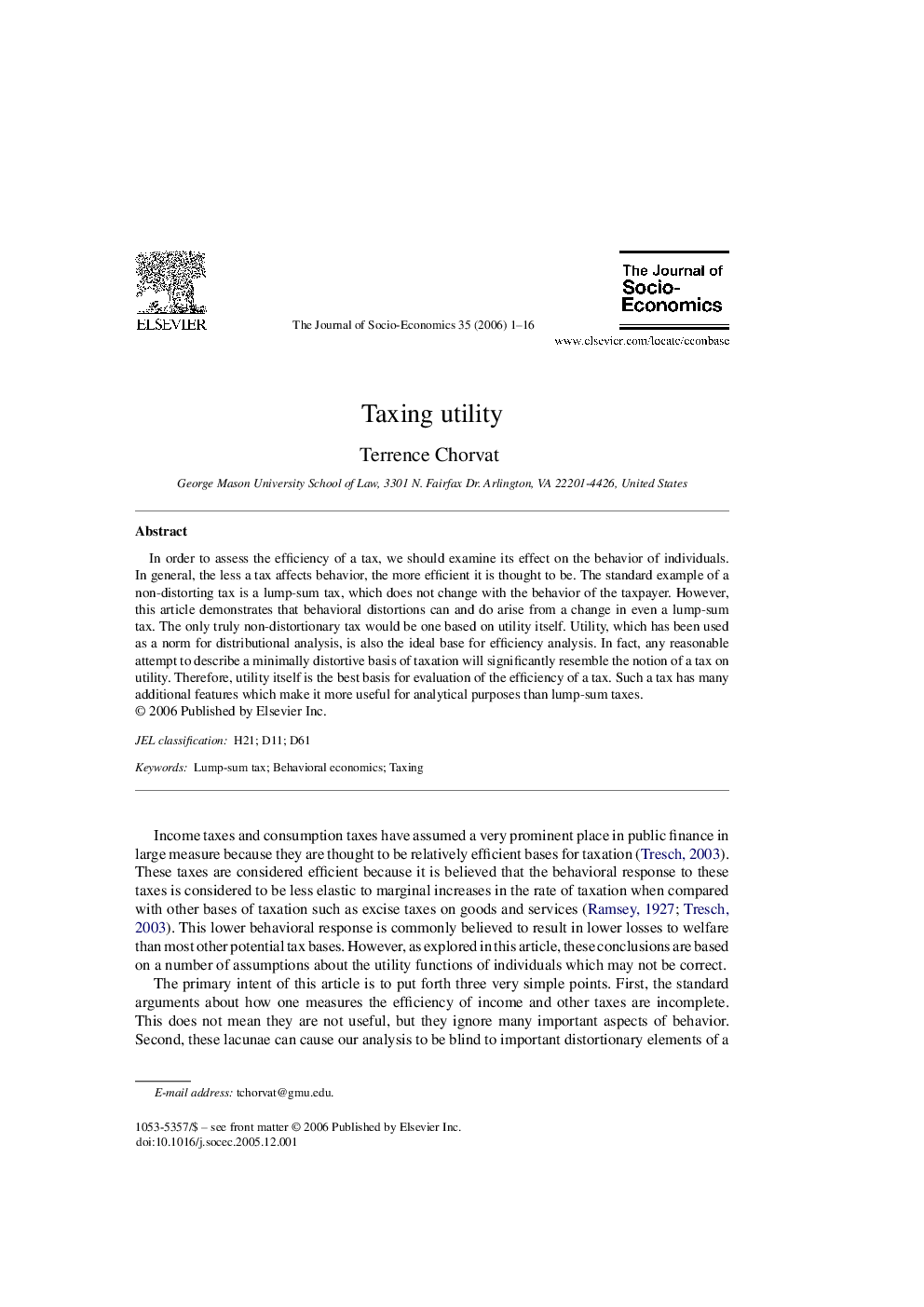| کد مقاله | کد نشریه | سال انتشار | مقاله انگلیسی | نسخه تمام متن |
|---|---|---|---|---|
| 970566 | 1479578 | 2006 | 16 صفحه PDF | دانلود رایگان |

In order to assess the efficiency of a tax, we should examine its effect on the behavior of individuals. In general, the less a tax affects behavior, the more efficient it is thought to be. The standard example of a non-distorting tax is a lump-sum tax, which does not change with the behavior of the taxpayer. However, this article demonstrates that behavioral distortions can and do arise from a change in even a lump-sum tax. The only truly non-distortionary tax would be one based on utility itself. Utility, which has been used as a norm for distributional analysis, is also the ideal base for efficiency analysis. In fact, any reasonable attempt to describe a minimally distortive basis of taxation will significantly resemble the notion of a tax on utility. Therefore, utility itself is the best basis for evaluation of the efficiency of a tax. Such a tax has many additional features which make it more useful for analytical purposes than lump-sum taxes.
Journal: The Journal of Socio-Economics - Volume 35, Issue 1, February 2006, Pages 1–16